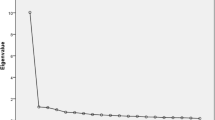The social and psychological impact of dysphagia has not been routinely reported in large studies. We sought to determine the effects of dysphagia on broad measures of the quality of life of patients and to explore the relationship between the psychological handicaps of the condition and the frequency of diagnosis and treatment. A total of 360 patients selected on the basis of known subjective dysphagia complaints, regardless of origin, in nursing homes and clinics in Germany, France, Spain, and the United Kingdom were interviewed using an established questionnaire. Qualitative interviews with a total of 28 health professionals were conducted to improve understanding of the patient data in the context of each country. Over 50% of patients claimed that they were "eating less" with 44% reporting weight loss during the preceding 12 months. Thirty-six percent of patients acknowledged receiving a confirmed diagnosis of dysphagia; only 32% acknowledged receiving professional treatment for it. Most people with dysphagia believe their condition to be untreatable; only 39% of the sufferers believed that their swallowing difficulties could be treated. Eighty-four percent of patients felt that eating should be an enjoyable experience but only 45% actually found it so. Moreover, 41% of patients stated that they experienced anxiety or panic during mealtimes. Over one-third (36%) of patients reported that they avoided eating with others because of their dysphagia. In a largely elderly population that might accept dysphagia as an untreatable part of the aging process, clinicians need to be aware of the adverse effects of dysphagia on self-esteem, socialization, and enjoyment of life. Careful questioning should assess the impact of the condition on each patient's life, and patients should be educated on their choices for treatment in the context of any coexisting illness. Awareness of the condition, diagnostic procedures, and treatment options must be increased in society and among the medical profession.
Similar content being viewed by others
Author information
Authors and Affiliations
Rights and permissions
About this article
Cite this article
Ekberg, O., Hamdy, S., Woisard, V. et al. Social and Psychological Burden of Dysphagia: Its Impact on Diagnosis and Treatment . Dysphagia 17, 139–146 (2002). https://doi.org/10.1007/s00455-001-0113-5
Received:
Accepted:
Issue Date:
DOI: https://doi.org/10.1007/s00455-001-0113-5




